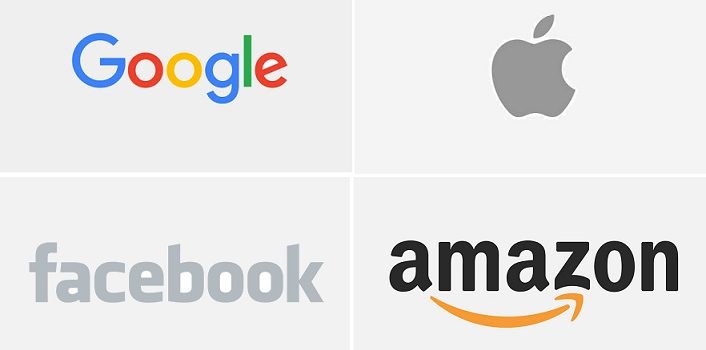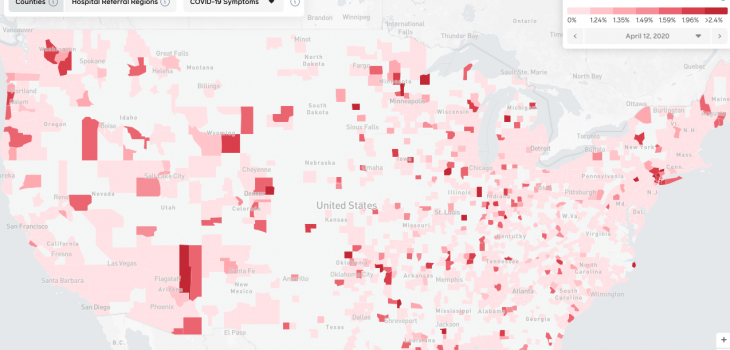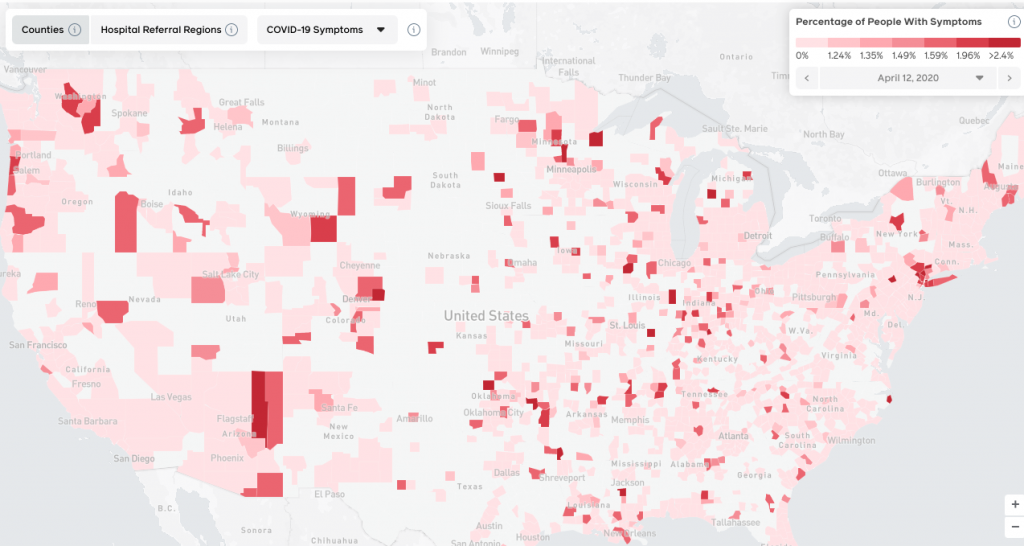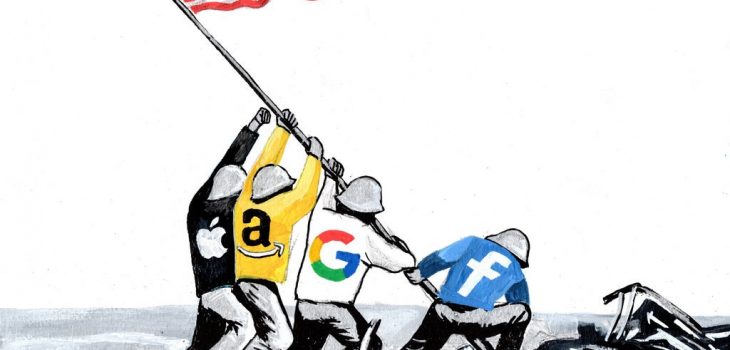 Policy
Policy
A Solution to Big Tech Monopolies: Open Source them
There’s been much discussion around the big tech platforms and whether they constitute monopolies that should be broken up. With the US government now scrutinizing this (and have even launched a case against Google) as well as EU regulators taking a critical stance, I thought we should consider how this might come about. In my 25+ years in tech, I’ve worked with, on and against pretty much all the big four (Google, Amazon, Facebook, Apple) as well as studied their practices in detail for my teaching at NYU Stern.
First, I’m not a lawyer but do my best to study those arguments. Most conclude that US antitrust law is not well equipped to address this issue. Antitrust precedent has mostly been based on harm to consumers due to inflated prices from lack of viable competition. Most tech companies give away a huge amount of value in their platform offerings for free (e.g. Google search). Thus, Google can, and has, made that argument. The recent case filed by the US Attorney General made other arguments for anti-competitive behavior but appears to be treading in unprecedented grounds to avoid this element of antitrust law.
The remedy offered by some is to simply break up the tech firms. Breaking up any company at this scale is complex but that is even more so with tech. The reason big tech has been so acquisitive and reaching further into consumers lives is because properties with large, locked-in user bases can be leverage their platform gaining tech network effects. Their products are technically intertwined at multiple levels but, most importantly, with identity. Identity ownership is a powerful tool and most new startups eschew their own proprietary login to use one or more of “login with Google, Facebook, etc”. For the startup, this lowers friction for new user sign-up and security management. For the big tech firms, it deepens their entrenchment at the center of the tech universe.
Besides the complexity, breakup is not necessarily the best remedy to actually drive the outcome sought: more competition in the key tech arenas to drive vs. stifle innovation. Take Facebook for example. The most cited breakup plan is to separate Facebook the social network and Messenger app from WhatsApp and Instagram. While that would lessen Facebook proper’s reach, each of those companies would still be dominant in their lane of digital social. While there is some overlap across those properties, each of them is distinct and doesn’t really compete with one another on core value proposition and thus wouldn’t suddenly create a multi-horse race.
There is some precedent around tech monopolies and lock-in from the 1990s US DOJ case vs. Microsoft and browser bundling. In that case, MS was giving away a valuable tool, the browser, with their dominant OS locking out other browsers which people had to install (and the third party browsers did not have lower level OS API access). It took many years, but MS was finally forced to unbundle the browser and offer alternatives. Ironically, by the time the case was settled nearly a decade after it started, a startup named Google had already created a viable competitor in Chrome which was rapidly taking share from MS IE. It was simply a better product.
Interestingly, Google Chrome is quasi-open source. Its core was and continues to primarily be developed by Google. As sort of a good will (or good legal strategy post-MS remedy), Google open sourced the code base. This allowed for external developers to understand the workings and improve it…with Google’s blessing. This has mostly benefited Google in keeping the broader community invested in improving Chrome. Few have challenged its supremacy be it open source (Firefox) or commercial (MS IE). And in one of the great turns of irony, Microsoft announced a few years back that their new browser, Edge, would be based on Chromium, the open source Chrome core. At the end of the day, Google maintains some level of control, but the issue of commercial lock-in and platform dominance has largely subsided in the browser arena due to Google’s wise move to open source it. And it was a wise business move as Google, at the time, did not make operating systems. Instead of trying to compete with MS in that arena, it created an open layer on top of Windows which correlated with the explosion of the consumer internet. Microsoft was bogged down from innovating in IE due to the DOJ lawsuit and trying to use it as a wedge to maintain their Windows + Office francise.
This case is instructive for my recommendation on how to deal with the current big platform monopolies we have today. They are the gatekeepers for most consumer commercial internet ventures. If you build a new app, you need to get it approved and pay Apple (App Store) and Google (Play Store). If you want to get traffic to your new website, you need to pay Google (Adsense) and optimize for their search engine (SEO). Alternately, if you want to reach that audience in social you operate on Facebook’s platform. Current estimates are that google has 50%+ of digital ad spend with Facebook at over 25%. That’s concentration of audience. And if you have a product you want to sell, you can build your own .com and deal with the aforementioned digital ad duopoly or sell under Amazon’s ever shifting and arcane platform rules which represents over 50% of e-commerce spend in the US. I should know. I operate several small digital businesses that depend on most of these platforms. You simply hope not to offend your king.
How do we change this? Let’s start with Google as its the one I’ve thought most about and is currently the most advanced from an antitrust standpoint. The solution is to open source its search and ad placement algorithms. The algorithms are a tightly held secret and rumor has it that even search/ad engineers at Google don’t know all the component parts so as not to walk out the door with it (kind of like the Coke formula). Knowledge of this would give advantages to those who want to rank and advertise so its understandable why its closely guarded IP.
By making these key algorithms open source, you level the playing field for access kind of like what Google did with Chrome 20 years ago. Google could remain a shepherd of them like it does Chromium, however, others would be able to implement it and thus have Google search-like results without the requisite commercial relationship (see Apple-Google search payments). First, this increases the algorithm’s impact and refinement (if you can imagine that) but lessens Google’s commercial influence and sole decision making which has, at times, biased toward their other properties (or whomever is paying them the most).
Second, the APIs by which ads are placed against that search algorithm would also be open source and available to other platforms. Currently, Google is the only entity able to place ads against its algorithm. They are the gatekeeper and extract a fee. By opening that up, others can offer placement services and compete for ad space. There is already a large ecosystem of DSPs and other agencies who do this and would be happy to move on step lower in the stack. However, today, they all have to get Google’s blessing (and pay their fee) to place an ad. Moving this to open source ultimately reduces the “cost” to consumers as the Google fee is removed (NOTE: some small fee would have to apply for running the infrastructure but multiple infrastructures could be run).
That said, one major area here that has to be dealt with is setting the rules of the road including content moderation for advertising. Unfortunately, there are these grey and black hat actors out there who try to use this access for nefarious purposes. The good news is that the open source community already has practices in place to deal with this at the code level. Since everything is out in the open and multiple, independent parties, must agree to accept contributions, this dissuades and monitors for insertion of bad things at the technical level. However, how do we do that at the content level? My proposal is to follow the open source model and leverage the existing ad rule setters like the IAB to guard this. A lot more thought needs to go into the details than I will cover here, but there is structure in place. Content moderation in advertising is easier than for consumer posts on social networks since you tend to be dealing with entities vs. anonymous consumers. Yet, I’ve offered one model for that. A foundation, similar to those that guard Linux, could be created for this and even be quasi-governmental.
Google’s argument against this will be about fairness given the billions in R&D they put toward developing this. Well, that’s really what happens in antitrust as they’ve made many times more those billions in the fees they’ve extracted over the years. Ironically, they are the innovator here who created the model here with Chromium (and, to a degree, Android) so they already know how to operate a thriving commercial entity in this manner. Plus, there are many other instances of successful businesses being built around open source (see: RedHat for one).
Besides browsers, there are already other examples of the open source model being a natural regulator against tech platform dominance:
- Linux in server operating systems
- Email in being distributed with a well-defined open, standard API
- W3C for web standards (http, etc)
- Android in mobile operating systems
And several other smaller ones.
Biden administration, I’m available if you’d like to talk further 😉 Let’s combine legal minds with unbiased tech operators to get to the best outcomes.
NOTE: This is just scraping at the surface of the complexity but we need a frame of thinking to deal with that complexity. I’ll be thinking about how this approach applies to the rest of the big 4 and a potential macro framework that the US gov’t and others should create to use this going forward for future posts.








